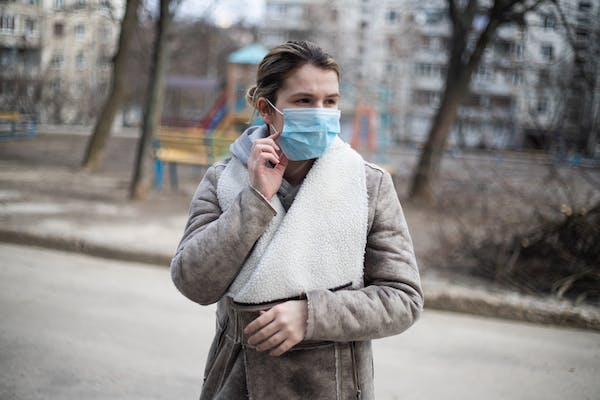Allergies & Immunology
Hypersensitivity Pneumonitis: Things You Need to Know
By S.I. (staff writer) , published on July 18, 2023

Medicine Telehealth Health respiration hypersensitivity
What is Hypersensitivity Pneumonitis?
Hypersensitivity pneumonitis (HP), also known as extrinsic allergic alveolitis, is a lung condition characterized by inflammation and damage to the lung tissue caused by an immune response to inhaled environmental antigens. This immune-mediated reaction can result in respiratory symptoms and, if left untreated, can lead to chronic lung disease.
Causes of Hypersensitivity Pneumonitis:
Hypersensitivity pneumonitis is triggered by exposure to specific environmental antigens, which vary depending on the type of HP. Some common causes include:
- Organic Antigens: Exposure to organic substances such as mold spores, bird droppings, and certain types of bacteria can trigger HP. For example, individuals working in agricultural settings or bird owners may be at higher risk of developing hypersensitivity pneumonitis [1].
- Inorganic Antigens: Certain inorganic substances, such as metals, can also elicit an immune response leading to hypersensitivity pneumonitis. Examples include exposure to aluminium, beryllium, and hard metal dust [2].
- Drug-Induced Hypersensitivity Pneumonitis: Certain medications, particularly those with a sulfonamide component, can cause a hypersensitivity reaction in the lungs. Common culprits include antibiotics, nonsteroidal anti-inflammatory drugs (NSAIDs), and chemotherapy agents [3].
Symptoms of Hypersensitivity Pneumonitis:
The symptoms of hypersensitivity pneumonitis can vary in severity and may resemble other respiratory conditions. Common signs and symptoms include:
- Shortness of breath, particularly with physical exertion
- Cough, which may be dry or productive of phlegm
- Chest tightness or discomfort
- Fatigue and weakness
- Fever, especially in acute episodes
- Muscle aches and joint pain
- Gradual weight loss
It is important to note that symptoms may be acute, occurring shortly after exposure to the antigen, or chronic, developing over a more extended period with repeated exposure.
Diagnosis of Hypersensitivity Pneumonitis:
The diagnosis of hypersensitivity pneumonitis involves a combination of clinical evaluation, medical history, radiographic findings, and specific diagnostic tests. These may include pulmonary function tests, high-resolution computed tomography (HRCT) scans, and serological tests to detect antibodies associated with specific antigens.
Treatment of Hypersensitivity Pneumonitis:
The primary treatment goal for hypersensitivity pneumonitis is to prevent further exposure to the triggering antigens. This often necessitates identifying and avoiding the specific environmental sources responsible for the immune reaction. Additional treatment options may include:
- Pharmacotherapy: Corticosteroids, such as prednisone, are frequently prescribed to reduce lung inflammation and manage symptoms. In severe cases, immunosuppressive medications may be considered [4].
- Supportive Care: Supplemental oxygen therapy may be necessary to alleviate shortness of breath and improve oxygen saturation. Pulmonary rehabilitation, including exercise training and breathing exercises, can enhance lung function and overall quality of life.
- Environmental Modifications: Making changes in the living or working environment can play a crucial role in preventing further exposure to the triggering antigens. This may involve implementing better ventilation systems, using air purifiers, or adopting personal protective equipment.
References:
- https://pubs.rsna.org/doi/abs/10.1148/radiology.189.1.8372179
- https://onlinelibrary.wiley.com/doi/abs/10.1002/ajim.1061
- https://www.sciencedirect.com/science/article/abs/pii/S0009926001907925
- https://www.atsjournals.org/doi/full/10.1164/rccm.201903-0541PP
Find articles related to: Medicine Telehealth Health respiration hypersensitivity
More articles about Allergies & Immunology
Back to the Health Tips Index




